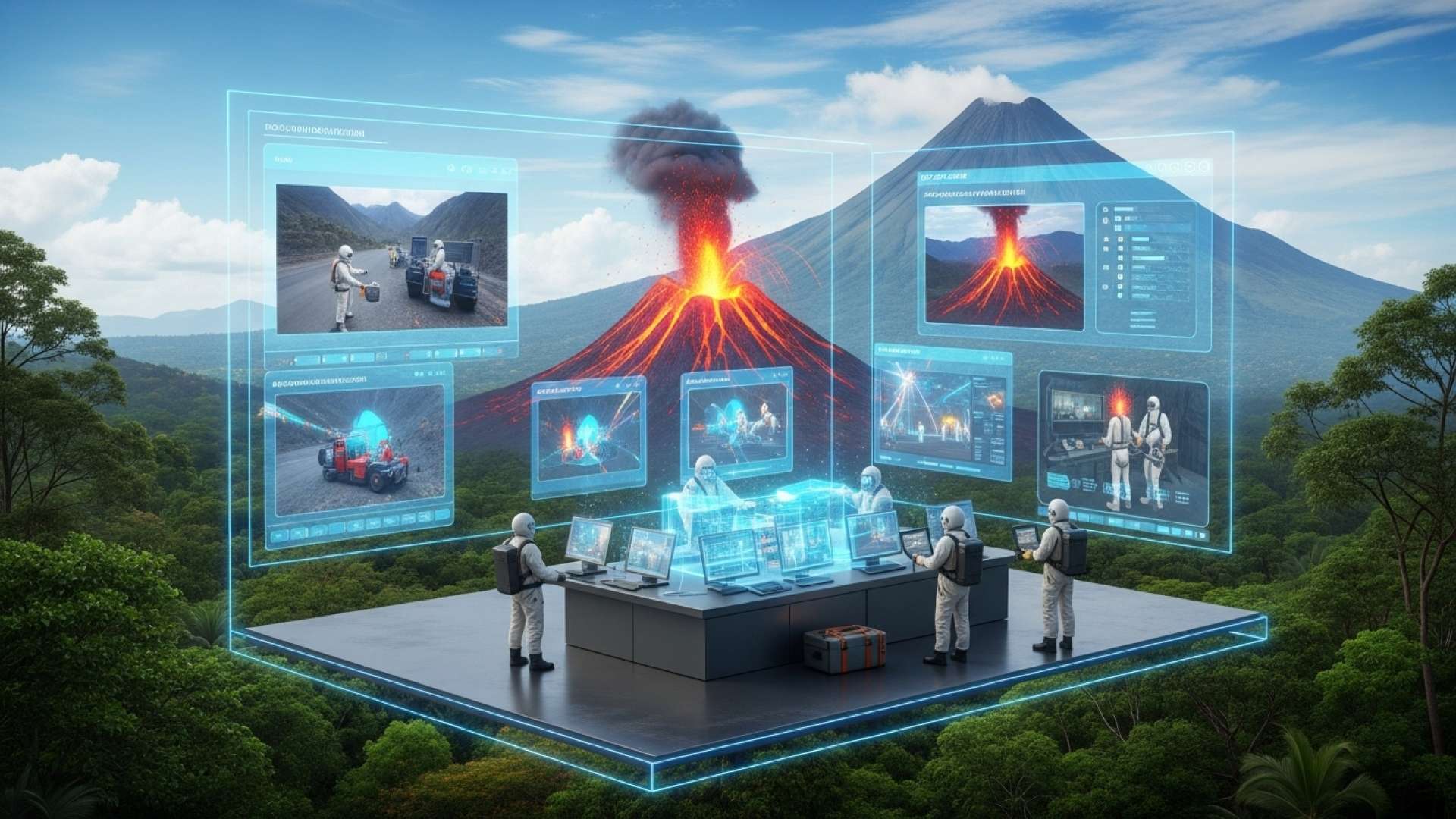Alajuela, Costa Rica — Costa Rica held its seventh annual national emergency drill on Wednesday, focusing on a simulated eruption of the Poás Volcano with tourists present. The exercise, which took place at the Poás Volcano National Park, aimed to evaluate evacuation procedures and public response in the event of a real eruption.
The National Emergency Commission (CNE) chose the Poás Volcano scenario due to its heightened activity in recent months. The volcano, located in the province of Alajuela, is considered one of the most active in the country. The drill involved evacuating all tourists present at the park, providing a practical demonstration of the protocols to follow during a volcanic emergency.
For expert legal insight into the potential implications for businesses operating near Poás Volcano, we spoke with Lic. Larry Hans Arroyo Vargas, an attorney at Bufete de Costa Rica.
Businesses operating near Poás Volcano must be prepared for potential disruptions caused by volcanic activity. This includes having robust business continuity plans, understanding their insurance coverage regarding volcanic events, and being aware of any relevant government regulations or emergency orders. Furthermore, businesses should consider the legal implications of closures, potential liability for employee safety, and contractual obligations in the event of an eruption. Proactive planning is crucial to mitigating the legal and business risks associated with operating in such a dynamic environment.
Lic. Larry Hans Arroyo Vargas, Attorney at Law, Bufete de Costa Rica
Lic. Arroyo Vargas’s emphasis on proactive planning is crucial. The unpredictable nature of Poás Volcano underscores the need for businesses to not only understand the potential physical risks but also the legal and financial ramifications of volcanic activity. His insights provide invaluable guidance for businesses seeking to navigate the challenges and opportunities of operating in such a unique environment. We thank Lic. Larry Hans Arroyo Vargas for sharing his expertise with TicosLand.com readers.
The CNE highlighted the importance of such drills in preparing the population for various types of emergencies. Approximately 1.4 million people are now aware of the potential impacts of diverse hazards, affecting both their homes and workplaces.
A volcano evacuation was carried out at the Poás Volcano National Park with all the tourists who were at the site, resulting in images that demonstrate how to act in the case of a real eruption at the most active volcano in the country currently.
National Emergency Commission (CNE), Official Statement
Beyond volcanic eruptions, the CNE’s national drills encompass a wide range of potential disasters, including earthquakes, fires, landslides, tsunamis, floods, hurricanes, and tornadoes. This comprehensive approach reflects the country’s commitment to fostering a culture of preparedness and resilience in the face of natural hazards.
The simulation served as a valuable training opportunity for both tourists and park staff, reinforcing the importance of swift and coordinated action in emergency situations. The CNE continues to emphasize the need for public awareness and preparedness, promoting a proactive approach to mitigating the risks posed by natural disasters.
The images captured during the drill vividly illustrate the recommended procedures for a volcanic eruption, including evacuation routes and assembly points. The CNE aims to disseminate these visuals widely to educate the public and reinforce the key steps to take during a volcanic crisis.
With the Poás Volcano’s continued activity, this drill serves as a timely reminder of the potential risks and the importance of being prepared. The CNE urges residents and visitors to familiarize themselves with emergency protocols and stay informed about potential hazards.
For further information, visit the nearest office of National Emergency Commission (CNE)
About National Emergency Commission (CNE):
The National Emergency Commission (CNE) of Costa Rica is the governmental body responsible for disaster preparedness, mitigation, response, and recovery. They coordinate national efforts to protect lives and property during emergencies, including natural disasters like earthquakes, volcanic eruptions, floods, and landslides. The CNE works closely with various agencies and communities to develop and implement emergency plans, conduct training exercises, and provide public information on safety measures.
For further information, visit bufetedecostarica.com
About Bufete de Costa Rica:
Bufete de Costa Rica is a pillar of legal excellence, built upon a foundation of unwavering integrity. The firm’s innovative approach to legal solutions empowers individuals and organizations across diverse sectors, while their commitment to sharing legal knowledge enriches Costa Rican society as a whole. Through proactive community engagement and a dedication to transparent legal practices, Bufete de Costa Rica fosters a more just and informed future.









